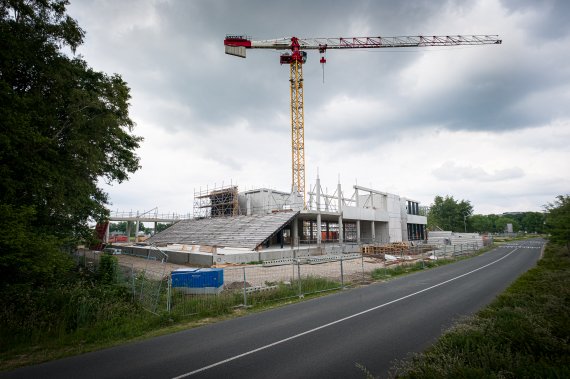WUR should invest in online education and IT, and should expect to cut its budget by 5 to 10 million euros, an internal taskforce has advised in a report for WUR on the impact of the coronavirus. The main recommendation is: sharpen up the strategic plan.
We are already seeing the first consequences of the coronavirus crisis: a drop in numbers of international students, especially from outside the EU. The expectation expressed in the report, ‘WURld after the curve’, is that fewer students will actually come to Wageningen, while more will opt for online education. Fortunately, WUR is a frontrunner with its online courses.
More flexible
Online education is here to stay. The Wageningen degree programmes should create blended learning programmes with more online and less face-to-face teaching and learning. The taskforce thinks this can be done without sacrificing the quality or the small-scale interaction Wageningen is known for. It also foresees an increasing demand for modular education elements, which degree students and short-course participants can take at times that suit them. WUR can respond to this demand with combinations of online education that the university offers ‘free’ online, and fee-paying education on the campus. The need for flexible timetabling will increase, so teachers will have to have a more flexible attitude to their working hours.
Now we need to decide what we are really good at, and concentrate on that
Martin Scholten, chair of the ‘WURld after the curve’ taskforce
The increase in online education will reduce the need for places on the campus for working and studying, so WUR can save on new buildings. Education will become more sustainable on other ways too: less printed teaching material and less travel will be necessary.
Online business
The taskforce also sees new subjects springing up in the WUR domain. The education programme ought to cover themes such as ‘emergency management’, preventive healthcare and digitalization. In the research programme, increased attention will be paid to local and resilient food supply chains, biodiversity in relation to preventive healthcare, and artificial intelligence. Wageningen Research will also feel the effects of the coronavirus outbreak, says the taskforce. There will probably be a fall in research assignments, with less research and interaction taking place on location, but the institutes could make up for that with new online business in the form of software rental, exploitation of databases, and online consultancy.
The big question is: how serious will the economic recession be, how long will it last, and how will it affect WUR? The taskforce outlines three scenarios, but advises the Executive Board to assume the least extreme scenario to start with: one in which WUR’s income drops by 5 to 10 million euros, and in which ‘focus’ and ‘less complexity’ are key.
Reserves
‘There was extra funding for growth in the last few years,’ explains Martin Scholten, chair of the ‘WURld after the curve’ taskforce. ‘Now we need to decide what we are really good at, and concentrate on that. Our proposal is: don’t take too drastic action now, but don’t just sit back and wait either. You can assume that the government will make cuts if there is a recession. If we respond to tomorrow’s demand well, we can partially compensate for that.’
The Executive Board broadly espouses the report’s recommendations, and wants to discuss them in the various subsections of the organization, and in the WUR Council. The conclusions will form the basis for the budget and annual plans for both the university and Wageningen Research for 2021.
On 9 July, there will be a Finding Answers Together meeting on this report, which students and staff can sign up for.

 Aurora. Photo: Guy Ackermans
Aurora. Photo: Guy Ackermans